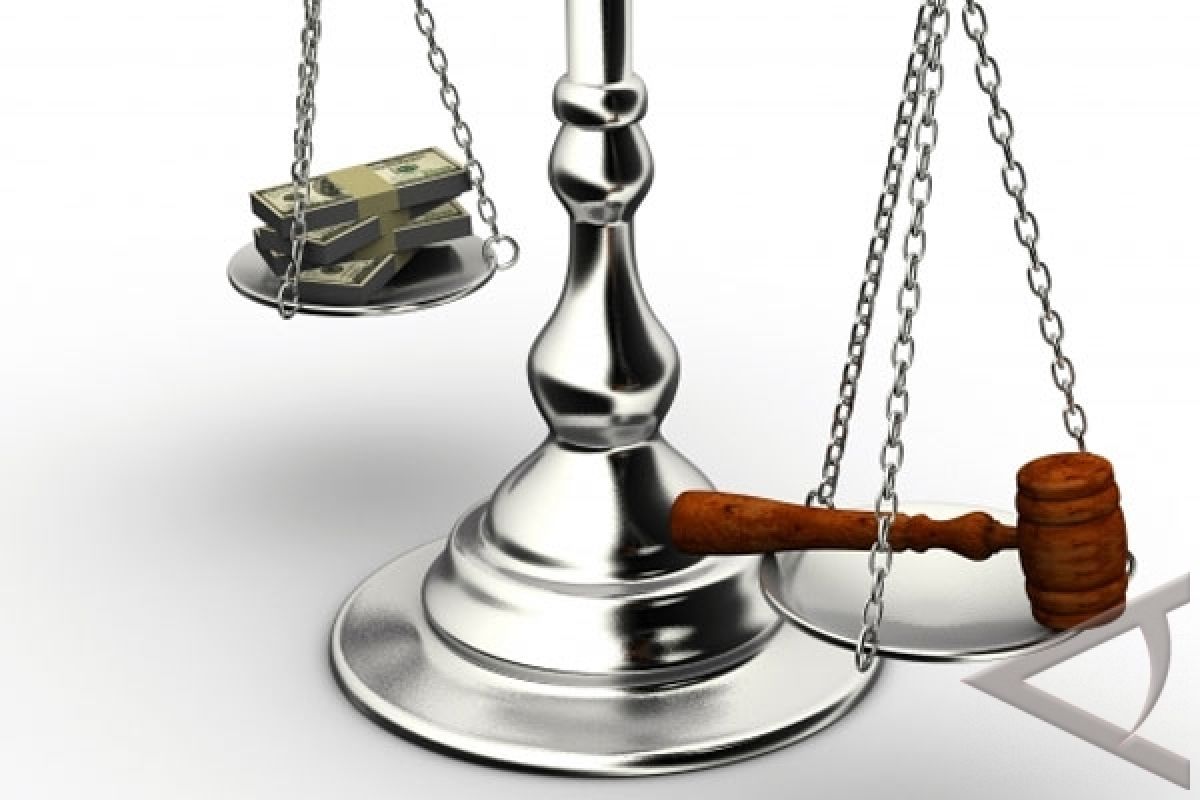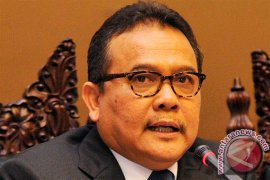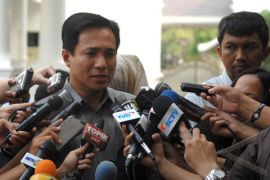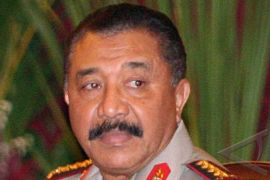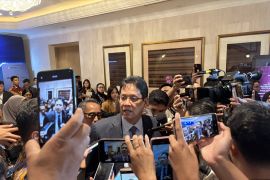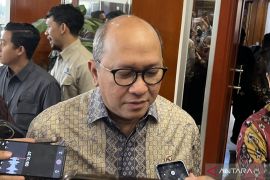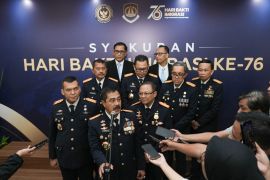"Corruption eradication in Indonesia in the reforms era (1998-2010) had not been carried out comprehensively, only partially," Siti Zuhro said.Jakarta (ANTARA News) - Although its goivernment has allocated huge sums to tackle such pressing problems aa financial market instability, climate change and poverty, Indonesia`s development continues to be hampered by rampant ecorruption.
According to Transparency International Ranking in 2010, Indonesia`s corruption perception index is at 110th rank with a score 2.8 of 200 countries worldwide.
The 2010 Corruption Perceptions Index shows that nearly three quarters of the 178 countries in the index scored below five, on a scale from 10 (highly clean) to 0 (highly corrupt).
According to Siti Zuhro, Ph.D, a political researcher of the Indonesian Institute of Sciences (LIPI), rampant corruption in the central government and local administrations depicted a weak law enforcement and surveillance in the nation.
"Corruption eradication in Indonesia in the reforms era (1998-2010) had not been carried out comprehensively, only partially. Therefore corruption is still rampant as there is a lack of convincing law enforcement and punishment, Siti said.
A survey conducted by the Corruption Eradication Commission (KPK) showed that the integrity index of Public service of government institutions is at 5.42 in 2010, lower than the 2009 index of was at 6.5, Siti said.
"If the government could show its commitment and seriousness in fighting terrorism, the same treatment should also be given to corruption eradication as corruption brings greater impacts and disadvantages than terrorism," she said.
Yudhoyono`s pledge
On the Third Bali Democracy Forum which was held at Westin Hotel in Bali Island`s Nusa Dua on December 9 and 10, 2010, President Susilo Bambang Yudhoyono said there shold be no room for people to commit corruption in Indonesia.
"Democracy which should make the people prosperous, surely must not have room for people commit corruption." Yudhoyono said in his remarks in opening the Third Bali Democracy Forum on December 9 2010.
The head of state said regional and global problems should be solved transparently and democratically.
In this information and technology era, it would be better for the government to show its transparency instead of concealing facts and hindering improvement efforts, Siti Zuhro said.
The macro economy target which had been achieved by the Indonesian government is considered to have a low significance for the people of lower social class and only widen the gap and discrepancy between the poor and the rich in the nation if corruption is still rampant.
Therefore, commitment and assertive acts of the government is necessary for improvement in law enforcement and corruption eradication which would lead to progress in many sectors.
Special courage
With regard to Indonesia`s corruption perception Index which ranks 110 from 200 countries, President Susilo Bambang Yudhoyono was urged to have `special courage` to fight corruption.
According to Siti Zuhro, President should escort to corruption eradication by giving special attention and firm instructions to law enforcement officials and institutions to conduct their duties consistently and independently.
"President`s leadership is very crucial in corruption eradication and mafia. Therefore, President Yudhoyono should act firmly and indiscriminately any involvement of the elites behind any corruption case," she said.
The success of corruption eradication could only be made by leaders who have a strong leadership and capacity in making political breakthroughs without fear of losing popularity due to decisions that is considered to pose a handicap to certain elites, Siti said.
"Therefore, a role model is needed for a successful corruption eradication in addition to promotion and campaigns. The commitment and consistency of those from the elite would serve as great lesson and example for the public eradication efforts," Siti said.
The threats of political maneuvers from certain elites could be nullified if there are firm support from the people and all institutions to the Corruption Eradication Commission (KPK), she said, adding that the support would raise KPK`s morale to remain consistent in corruption eradication.
Should Indonesia emulate China in fighting corruption?
"China`s efforts to eradicate corruption could be a good example. Corruption was once also rampant in China but its leaders eventually made the crime punishable by death," Siti Zuhro said.
Corruption, in addition to property crime such as theft, and smuggling gold, silver or other precious metals is amongst crimes that are eligible for the death penalty in China.
The death penalty proved to be effective in eradicating corruption in China as there were records of reduction in number of corruption in that country, Siti said.
"Indonesia should evaluate its law enforcement institutions if they failed to show good performance in corruption eradication," she said, adding that if the evaluation showed this country needs to adopt certain penalty to punish the corruptors, such as death, then the punishment should be carried out in the country.
"Corruption is a serious crime and we should not tolerate it as it undermined this country," Siti said.
Previously, Constitutional Court chairman Mahfud MD said he agreed with the idea to make corruption punishable by death to deter would-be corruptors.
Actually idea already existed for a long time but it seemed that some quarters still could not accept it, he told newsmen after speaking at a seminar at Sriwijaya University on April 9 2010.
Prof Dr Saldi Isra from Andalas University in Padang, West Sumatra, shared Mahfud`s view that corruptors had to be given the death sentence.
He however also added that corruptors had to be stripped of all their their wealth and rights.
He said corruptors had so far been able to rehabilitate their reputation by using their money and so if they could be stripped of their wealth corruptors would certainly be deterred.
South Sumatra Vice Governor Eddy Yusuf also expressed his agreement for the imposition of the death penalty on corruptors.
He supported Mahfud`s statement adding the law must become "the commander" to counter and fight corruption as well as other very serious crimes.
(T. KR-AES/HAJM/P003)
Reporter: Aditya E.S. Wicaksono
Editor: Priyambodo RH
Copyright © ANTARA 2011
